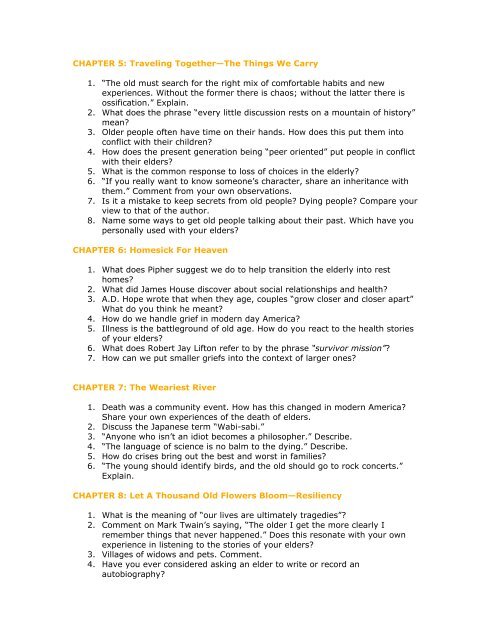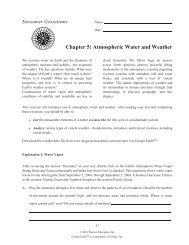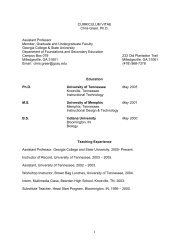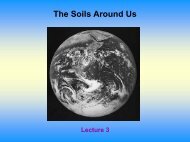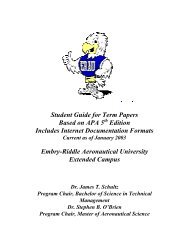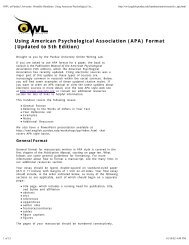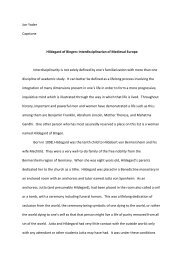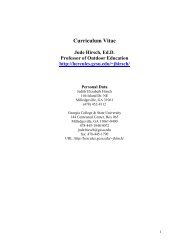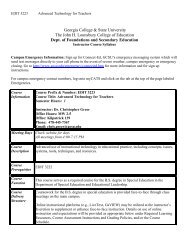study questions
study questions
study questions
- No tags were found...
Create successful ePaper yourself
Turn your PDF publications into a flip-book with our unique Google optimized e-Paper software.
CHAPTER 5: Traveling Together—The Things We Carry1. “The old must search for the right mix of comfortable habits and newexperiences. Without the former there is chaos; without the latter there isossification.” Explain.2. What does the phrase “every little discussion rests on a mountain of history”mean?3. Older people often have time on their hands. How does this put them intoconflict with their children?4. How does the present generation being “peer oriented” put people in conflictwith their elders?5. What is the common response to loss of choices in the elderly?6. “If you really want to know someone’s character, share an inheritance withthem.” Comment from your own observations.7. Is it a mistake to keep secrets from old people? Dying people? Compare yourview to that of the author.8. Name some ways to get old people talking about their past. Which have youpersonally used with your elders?CHAPTER 6: Homesick For Heaven1. What does Pipher suggest we do to help transition the elderly into resthomes?2. What did James House discover about social relationships and health?3. A.D. Hope wrote that when they age, couples “grow closer and closer apart”What do you think he meant?4. How do we handle grief in modern day America?5. Illness is the battleground of old age. How do you react to the health storiesof your elders?6. What does Robert Jay Lifton refer to by the phrase “survivor mission”?7. How can we put smaller griefs into the context of larger ones?CHAPTER 7: The Weariest River1. Death was a community event. How has this changed in modern America?Share your own experiences of the death of elders.2. Discuss the Japanese term “Wabi-sabi.”3. “Anyone who isn’t an idiot becomes a philosopher.” Describe.4. “The language of science is no balm to the dying.” Describe.5. How do crises bring out the best and worst in families?6. “The young should identify birds, and the old should go to rock concerts.”Explain.CHAPTER 8: Let A Thousand Old Flowers Bloom—Resiliency1. What is the meaning of “our lives are ultimately tragedies”?2. Comment on Mark Twain’s saying, “The older I get the more clearly Iremember things that never happened.” Does this resonate with your ownexperience in listening to the stories of your elders?3. Villages of widows and pets. Comment.4. Have you ever considered asking an elder to write or record anautobiography?


